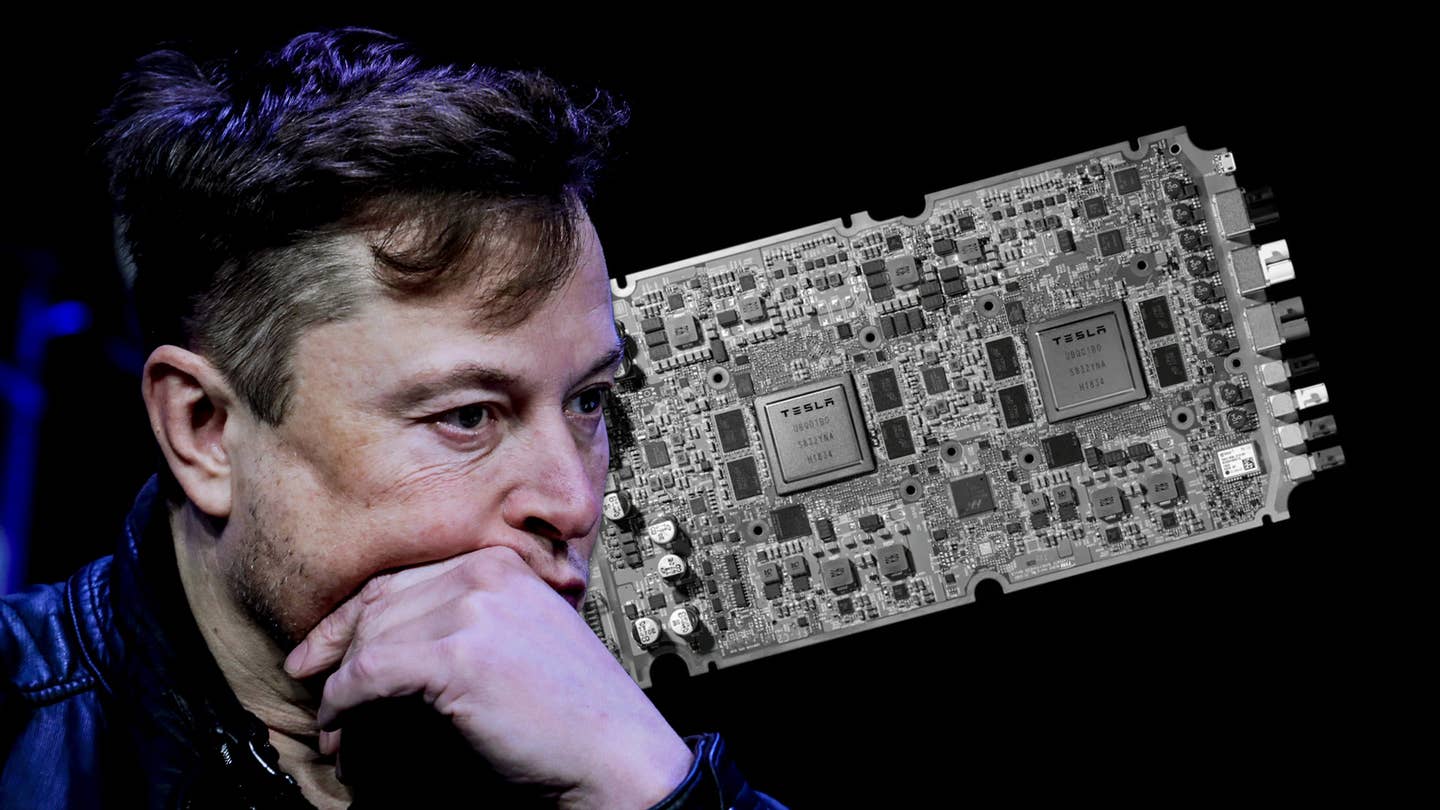Tesla Cybertruck Gets New Self-Driving Computer That Might Not Be Retrofit to Other EVs
CEO Elon Musk says its existing hardware “will not be as good” as its upcoming Hardware 4.

Tesla is getting ready to roll out the next version of its Full Self-Driving (FSD) computer to its line of passenger vehicles. The first of which, according to Musk's commentary during the company's last quarterly earnings call for 2022 held on Wednesday, is the Tesla Cybertruck.
Dubbed Hardware 4 (HW4), the newest computer will replace Tesla's existing Hardware 3 (HW3) computer, which has been available in its vehicles since April 2019 and is used as a computing resource for its partially-automated driver assistance systems, AutoPilot and Full Self-Driving. However, unlike HW3, Tesla will most likely not make a retrofit installation available to existing vehicles, making some owners question whether or not their vehicles are truly capable of the automated features promised by Tesla in years past.
The biggest unknown is if existing vehicles on the road will eventually need HW4 to continually make use of updates introduced to both the Autopilot and Full Self-Driving driver assistance suites. Officially, the answer is technically no, according to CEO Elon Musk. But there is one big drawback:
"Hardware 3 will not be as good as Hardware 4," said Musk during the company's last quarterly earnings report. "But I'm confident that Hardware 3 will so far exceed the average safety of the average human. Let's say, for argument's sake, if Hardware 3 can be 200% or 300% safer than human, Hardware 4 might be 500% or 600%. It will be Hardware 5 beyond that. But what really matters is are we improving the average safety on the road."
If Tesla's Full Self-Driving suite does end up functioning with its existing hardware, the fact that existing Tesla vehicles won't have HW4 isn't necessarily a big deal.
However, it's worth noting that Tesla has made similar claims before for vehicles equipped with HW2.5. It was later revealed that vehicles needed HW3 in order to purchase Tesla's Full Self-Driving software, which led to Tesla offering a retrofit upgrade for vehicles at an additional charge. Recently, a customer sued Tesla over claims of false advertising and won the case, resulting in a judge ordering that Tesla cover the cost of the upgrade in full since a blog post made by Tesla claimed that "all Tesla vehicles produced [as of October 2016] will have the hardware needed for full self-driving capability."
Unlike the move to HW3, Musk says that it is unlikely that the company will offer an upgrade to HW4 due to cost factors.
"The cost and difficulty of retrofitting Hardware 3 with Hardware 4 is quite significant," said Musk, responding to an investor question regarding upgrading older cars to HW4. "So it would not be, I think, economically feasible to [have an upgrade path for Hardware 3 cars]."
As Tesla introduces a new version of its hardware, the automaker must also maintain a functional version of its Autopilot and Full Self-Driving code for vehicles running on HW3 given its decision not to upgrade existing vehicles. The automaker has already been cutting back on what HW3-equipped vehicles actually use out of its stack. For example, Tesla has been focusing on moving to what it called "Tesla Vision"—as the name implies, it involves using only the vehicle's cameras in order to process driving data. New Model 3 and Y vehicles had their radar units completely removed from the factory last year, whereas existing vehicles were transitioned into using only the cameras at a later date. The same goes for the short-range ultrasonic sensors which are now absent from new vehicles.
Tesla does, however, appear to have a new high-resolution radar up its sleeve that may make its way into a new product update. It's unclear if this is a HW4-related upgrade, or if Tesla plans to slap the unit on existing vehicles but that seems unlikely given Musk's comment on upgrading not being "economically feasible."
Musk's comments come at a time when the automaker is already under extreme scrutiny by both long-time customers and regulatory bodies over the marketing of its Full Self-Driving software. Some customers have even resorted to suing the automaker for failing to deliver on its promised capabilities. The California Department of Motor Vehicles also filed two complaints with the state's Office of Administrative Hearings over alleged misrepresentation of Autopilot and Full Self-Driving's capabilities. Separately, a passed California bill calls out FSD by name to prevent the misrepresentation of a vehicle's driver assistance capabilities.
Musk confirmed that the Tesla Cybertruck will launch with Hardware 4, indicating that it is likely the first passenger vehicle equipped with the newest iteration of Tesla's FSD computer. It is not clear which version of the computer the Tesla Semi has equipped.
Got a tip or question for the author? Contact them directly: rob@thedrive.com
